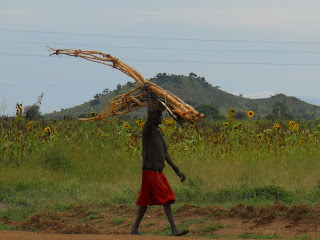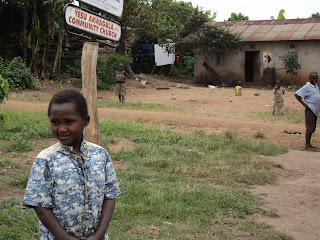What is your favorite meal? What is your favorite soccer team? What is your father’s name? What does he do for a living? …..These are some of the questions that I ask our kids, Mercy Uganda’s Sponsored Children. No, it’s not my way of making awkward small talk. This is official business. In addition to documenting the children’s school information, tuition payments, and grades, it is also my job to document as much as I can about this child as a person. It can be challenging when I sit down with a child for the first time. American kids are groomed to share—share their opinions, desires, complaints. But Ugandan children tend to be different. It takes a while to draw them out. Quite frankly, the kids look at me like I’m crazy for some of the questions I ask. Why does this muzungu woman want to know if I like bananas or what my shoe size is? Well, if I am going to drop by the school and bring a treat, I need to know if they would prefer oranges, apples, or bananas. And if a sponsor ever wants to give a child an extra gift of shoes, I need to have on-file what size the kid wears. I don’t tell the children my reasoning. It’s ok with me if they think I’m eccentric.
One of the best parts of these little interviews is how one simple question often leads to another, which ends up giving me insight into the culture that I never would have had otherwise. This September I sat down with Michael Ludungu, a newly sponsored 10-year-old from Karamoja. I learned that he has six brothers and sisters; he is a dedicated fan of Manchester United, and he gets malaria about four times a year. Normally, the answers to the following questions are not particularly interesting, bur there’s a first for everything:
“What is your father’s name?”
“John.”
“What does he do for a living?”
“He traps rats.”
(Pause)
“You mean, he goes into to people’s homes and they pay him to kill the rats?” Hmm, I could use that. There’s a mouse in my home that has been evading capture for a week.
“No, not in the house. Just there—in the field.”
(Pause)
“How does he make money by catching rats in the field? Do rats damage your crops and farmers pay you to catch the rats?”
“He sells them”
“He sells the rats?”
“Yes”
(Pause)
“Why would anyone buy a rat?” At this point, John Lobali, one of our high school boys, interrupts to explain what should be obvious.
“People eat them,” John clarifies. He must find the reaction on my face amusing because a few moments later he cracks up laughing.
“Okay…” Where to begin with the follow up questions??? “Um, people like...um, do they taste good?”
“Yes,” they answer in unison.
“What if the rat has rabies? Can’t people get sick if they eat the wrong rat?”
“That is the chance you take,” John says, still chuckling.
Well, there doesn’t seem to be much more to say about that, so we move on to the next topic. Later that afternoon when I am visiting the new well in Kokorio, I run into John again. He is happy to show me how people trap rats. It’s hard to explain with just words, but these pictures should help:
This is John holding a rat trap. It looks more like a bow than a trap at first glance. But if you look closer…
Barely visible in this photo is small loop where the stick meets the ground. When a rat runs through the loop, it tightens and catches the rat by the foot. Trappers tend to put the stick in clumps of grass where rats feel safe running around. Clever, huh?
Don’t be mistaken—eating field rats is not a typical African practice. It’s not even typical of Uganda. My husband is Ugandan. Even with the harsh poverty he suffered under as an orphaned child, he never ate rats or heard of anyone doing so. Karamoja is different. The poverty is extreme, incomparable to anything else I have witnessed with my own eyes. And yet, looking at John and the boys from the village of Kokorio holding a rat trap, they don’t seem to pity themselves or the fact that rat meat is the only meat their families will be able to afford all year. They actually seem quite proud to be able to show off what they have made with their own hands, to show me their resourcefulness in feeding themselves. Like I said before, the simplest question can lead to another question, which gives you a whole new level of insight into a culture.









































